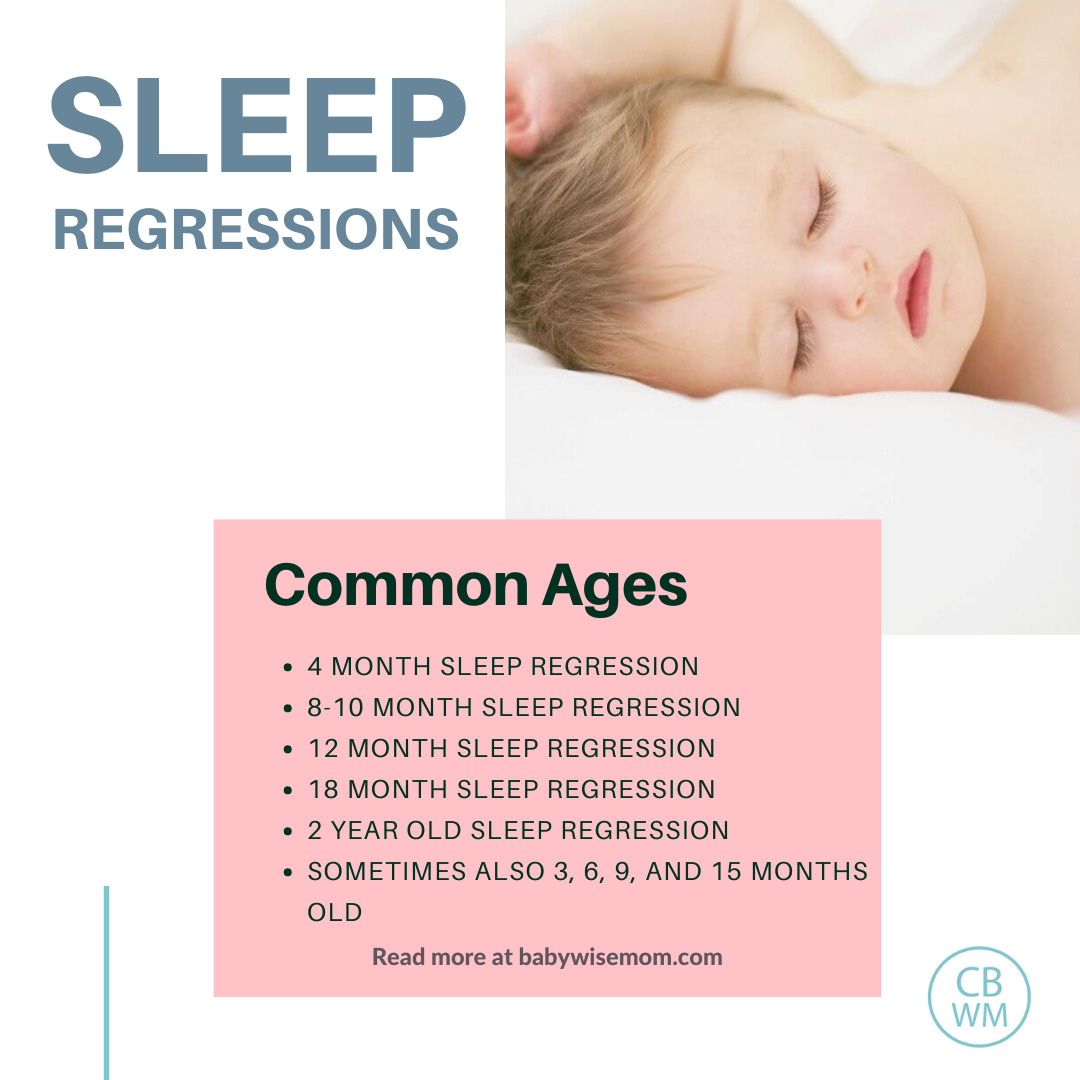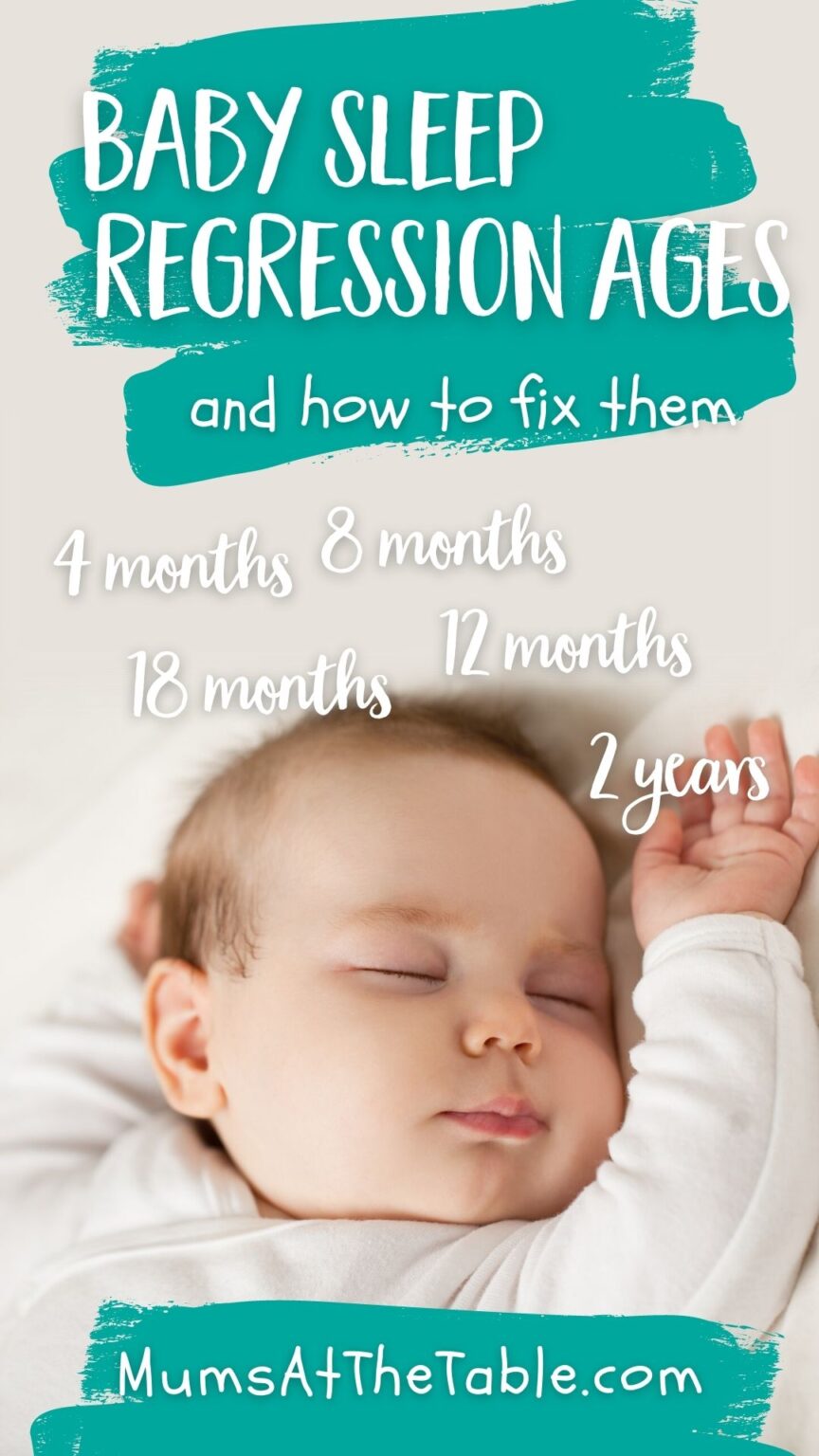Baby Sleep Regression Causes Ages And What To Do

Sleep Regressions Causes Ages And What To Do Here are some signs your baby may be going through a sleep regression: [2] track your baby's sleep with the baby tracker tool in our free app. more frequent night waking. trouble falling asleep at bedtime. increased fussiness or crankiness. sudden resistance to naps. In my 15 years of experience as a sleep consultant and working with thousands of families over the years, there isn’t a 6 month sleep regression. some 6 month olds do have sleep problems around this age, but there isn’t a 3 to 6 week period with chronic sleep problems like the other regressions listed on this page.

Sleep Regression Ages How To Approach Them Like A Pro Mums At The Table The typical infant sleep regression ages are: 4 months. at this age, not only are babies starting to pull themselves up, “they’re starting to develop associations, so they begin to ‘need’ a parent, a bottle, a pacifier—whatever they are used to falling asleep with,” says moore. 6 months. 2. feed your baby well during the day. make sure your baby gets enough to eat throughout the day so they’re not hungry overnight or midway through a nap. eating about 15 minutes before heading. But it really is just one regression that hits babies at different ages. the 8 month sleep regression is the same as the 10 month sleep regression. this regression can be attributed to new skills, teething pains, language explosion, and separation anxiety. a lot of milestones are met in this 8 10 month old time frame. Common sleep regression ages. miodrag ignjatovic e getty images. so, when do sleep regressions happen? every baby is different, super says. “the developmental progression for infant sleep is.

A Guide To Baby Sleep Regression Ages But it really is just one regression that hits babies at different ages. the 8 month sleep regression is the same as the 10 month sleep regression. this regression can be attributed to new skills, teething pains, language explosion, and separation anxiety. a lot of milestones are met in this 8 10 month old time frame. Common sleep regression ages. miodrag ignjatovic e getty images. so, when do sleep regressions happen? every baby is different, super says. “the developmental progression for infant sleep is. A baby’s sleep architecture significantly changes around 3 months. this biological change can lead to a change in sleep patterns, which is commonly known as “the 4 month regression” but can impact sleep earlier, at 3 months. around 3 4 months old, an infant’s sleep matures. suddenly they’re sleeping in stages and cycles, similar to. The truth is that sleep quality ebbs and flows for most kids. sleep regressions are periods of worse sleep that might last two to four weeks. they are common in a baby’s first year and beyond. rest assured, if you stick to your guns, these regressions are typically short lived. your baby’s sleep will go back to normal.

Comments are closed.